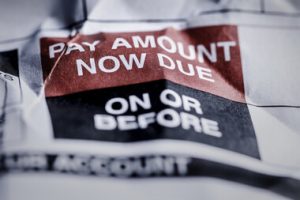The IRS and Private Tax Debt Collection
To collect unpaid taxes, the IRS is turning to private companies.
 The growing backlog of debt has proved too much for the agency, which continues to use four debt collection companies to round up outstanding payments from taxpayers who’ve been contacted numerous times and still haven’t coughed up any cash.
The growing backlog of debt has proved too much for the agency, which continues to use four debt collection companies to round up outstanding payments from taxpayers who’ve been contacted numerous times and still haven’t coughed up any cash.
The new private debt collection program originally started slowly, with just a few hundred taxpayers a week receiving mailings and subsequent calls. But now it’s in full swing, with thousands of people being contacted.
Taxpayers with long-overdue tax bills who’ve received several collection notices from the IRS through the mail are now being informed that their accounts have been transferred to private collectors. The collection agencies send letters of their own, clearly identifying themselves in all communications as working for the IRS.
Collectors Follow the Fair Debt Collections Practices Act
Of course, these new debt collectors need to follow the Fair Debt Collection Practices Act, which spells out when they can call, whom they can call, and what they can and cannot say. The IRS has told the collectors not to use robocalls to contact taxpayers.
The new private debt collection program comes straight from Congress, which required this action, noting that it’s a way to fund road improvement projects for the Fixing America’s Surface Transportation Act, which was passed in 2015.
The four collection agencies are CBE Group, ConServe, Performant and Pioneer Credit Recovery. These agencies explain how they work. For example, Performant notes on its website how they work and lists official government sites for more information.
Protecting Yourself from Scammers
A problem jumps into anyone’s mind: how to tell the official debt collectors from the scammers. The IRS has noted that the it is urging taxpayers to be on the lookout for scammers who might use this program as a cover to trick people. One sign is payment: Performant notes, for example, that it tells taxpayers to make checks out to the federal government, and not to the private agency.
So, how can taxpayers protect themselves from new scams? There are some simple ways to tell whether the call is legitimate or from a fraudster. It’s a scam if the caller does any of the following:
- Is very aggressive or threatens you in any way with arrest or someone coming to your house.
- Tries to pressure you to make immediate payment.
- Asks for your credit or debit card information.
- Requests payment via gift cards, including Amazon and iTunes, prepaid debit cards, or a wire transfer.
More information is available on the U.S. Treasury site.
We’ve got your back
Legitimate private debt collection firms will instruct taxpayers to send a check, made out to the U.S. Treasury, directly to the IRS. It’s always a good idea to check with us to keep up to date with the new program and the new scams that come from it. Of course, if you have an outstanding debt to the IRS, contact us immediately so we can help you with the process of paying the government what you owe. Don’t go it alone! Contact KRS managing partner Maria Rollins at mrollins@krscpas.com or 201.655.7411 for a complimentary initial consultation.



